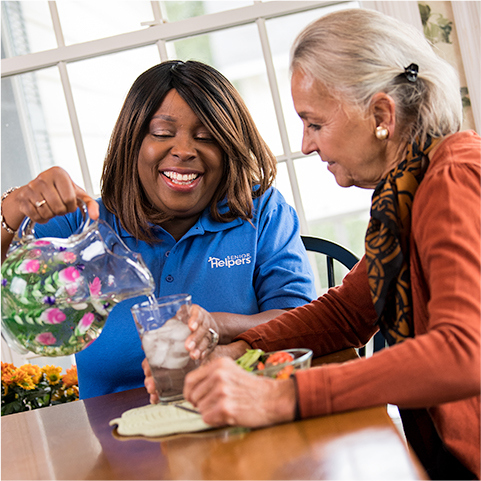What Is a Home Safety Evaluation?
A lot of accidents and injuries happen at home. This is because it is so easy to overlook a small detail such as broken stairs, a continuous drip that is actually an indication that a pipe is at the danger of bursting, not enough smoke detectors, poor lighting, lint in clothes dryer etc.
With aging adults and their ever changing abilities, home may not be as safe as before. Their homes may be full of potentially hazardous situations depending on the physical and mental changes they experience, such as areas that can make them at risk of falling. Cooking unsupervised may no longer be a safe activity for your aging mother because of memory decline though she was once a chef. It may be difficult for another aging adult to get up after using the towel bowl or the chair without help.
A home safety evaluation is an in-depth assessment (which our eldery care services may include) of potential hazards in and around your home. These likely hazards include anything that could result in personal injury, fire accidents or flooding in your home, endanger your safety or make it easy for a burglar to enter your home.
It is also known as a home safety audit. A security evaluation is an instrument to detect the important steps you need to take so that your home is as safe and secure as possible for everyone in your family at all times. You can actually do a home safety audit on your own by pinpointing common household hazards and checking them regularly.
Safety Concerns to Look out For the Elderly
Some potentially dangerous situations for elders include: Inability to use the oven/cooker safely, spoiled food in the refrigerator, throw rugs can make the elders trip, slippery floors, dim lighting, expired drugs, lack of handle rails for stairs, broken stairs, walkways that are too narrow or always crowded.
However, occupational or physical therapists have received adequate training to detect these hazardous situations even beyond what even you can see and can provide customized suggestions on making a senior’s home safe and secure again.
The difference between you conducting a home safety evaluation and an occupational or physical therapist conducting it is that they are screening for potential hazards with special considerations to the specific needs and challenges of the senior who lives there. They not only check the physical environment, but how the elder interacts within it too.
Once the therapist is done with the home safety evaluation, he or she highlights any concerns and provides customized recommendations based on the senior’s exact situation.
They carefully consider all the challenges facing the senior, including: ability or inability to walk or balance, vision or hearing loss, fatigue, muscle weakness, physical pain, depression, dementia, chronic medical conditions, delirium, arthritis, etc. They will also take account of the medication challenges, financial limitations, transportation challenges and low social support.
Personalized Recommendations
After their thorough assessment, they make recommendations based on their findings. they may recommend removing throw rugs to reduce the risk of the elder falling down, adding grab bars or handle rails, or changing where medication is stored.
They may also suggest replacing furniture, cleaning up clutter, or adding threshold ramps which may look simple modifications but they make a big difference. However, some of the recommendations may not be so easy such as widening the doorway or making major structural changes.
Home Care Increases Home Safety
Most occupational therapists recommend home care support for seniors who live in a hazardous situation at important times throughout the day or even all through the week. You can hire caregivers from home care agencies which provide professional caregivers to help seniors at the comfort of their homes in these kinds of situations. These caregivers provide a wide range of services which are personalized based on each senior’s specific needs. This contributes significantly to their feeling safe at home and their overall wellbeing.
Because these home care services are tailored to the uniqueness of each situation, they vary from case to case, however some common recommendations for home care support include: light housework chores
clearing up clutter,ensuring clean, dry floors in bathrooms or other areas, cleaning out the refrigerator regularly and changing bed or laundry, shopping assistance, cooking, medical reminders, bathing or toilet assistance, transportation, mobility assistance, etc.
Arranging for a Home Safety Evaluation
Most times the physician in charge orders home safety evaluations before discharging a patient home from the hospital. However, if you are worried about the home safety of an elderly loved one in your life, you can discuss with the doctor about a home safety evaluation. And most times, Medicare or medical insurance will cover most or all of the costs of this service.
